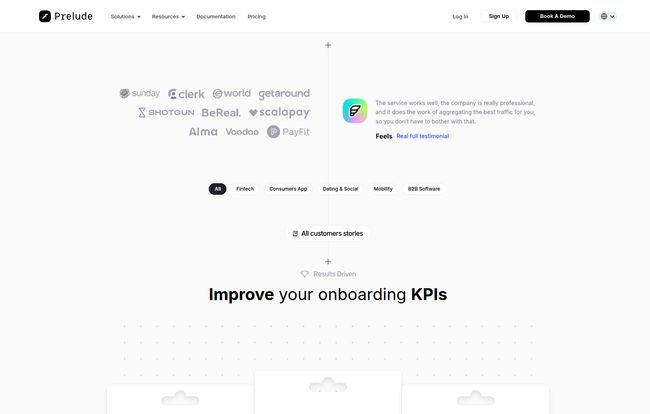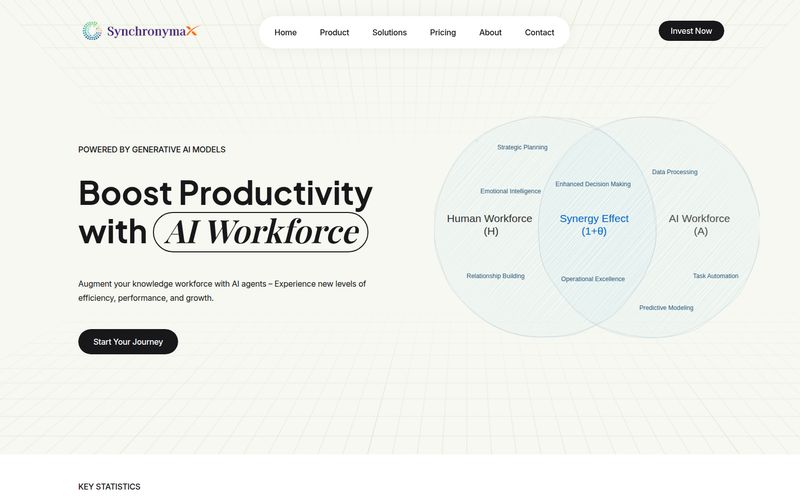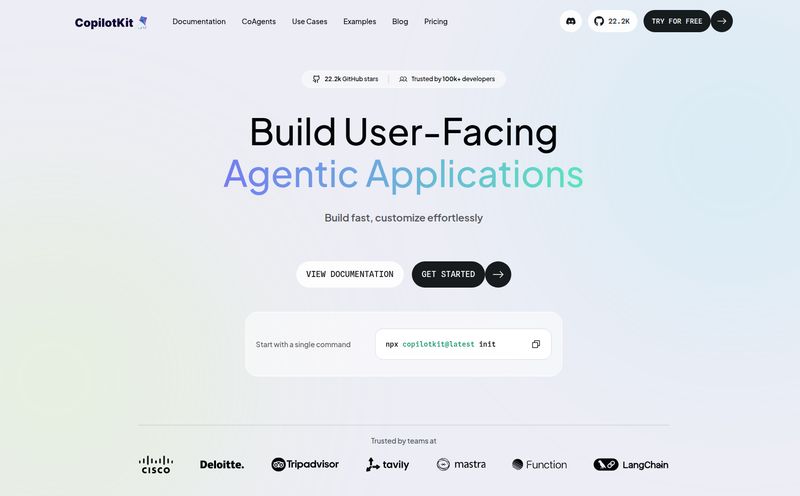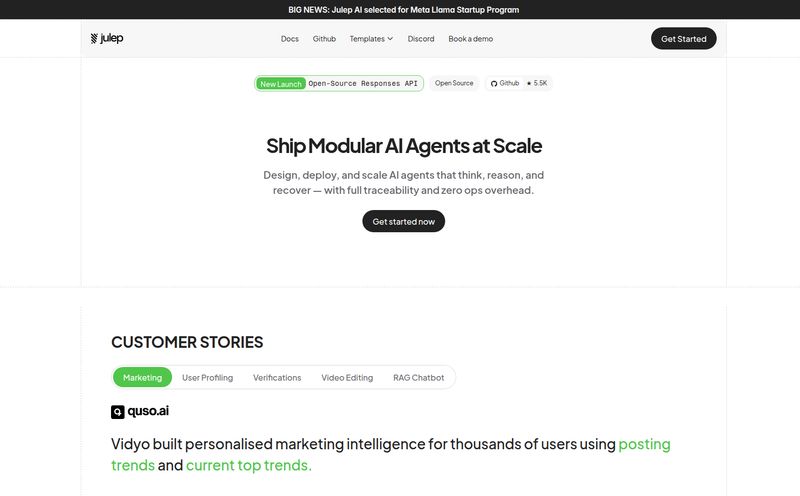If you're building any kind of app or service that requires a user to sign up, you’ve felt the pain. The user onboarding funnel. It's a delicate, leaky bucket we're all constantly trying to patch. You spend a fortune on CPC to get users to your door, and then what? They hit the sign-up form, get asked for a phone number, and… crickets.
Maybe the verification SMS never arrives. Maybe it lands in their spam folder 10 minutes later. Or maybe, just maybe, you're getting slammed by bots creating thousands of fake accounts, burning through your SMS budget like a teenager with their first credit card. I've been there. I've stared at the analytics, watched the drop-off rates, and cursed the name of my generic, single-carrier SMS provider.
It’s a constant battle between security, user experience, and cost. For years, the default answer was just to plug in a big-name API and hope for the best. But recently, I stumbled across a platform that feels different. It's called Prelude, and it’s not trying to be everything to everyone. It wants to do one thing—OTP and SMS verification—and do it exceptionally well. So, I decided to take a closer look, and this is my no-fluff take on whether it lives up to the hype.
What Exactly is Prelude? (And Why Should You Care?)
At its core, Prelude is an API built for developers to handle phone verification. Simple enough. But the magic isn't in what it does, it's in how it does it. Think of it less like a simple postman delivering your messages and more like a sophisticated global logistics manager for your One-Time Passwords.
Instead of relying on a single, fallible network, Prelude is plugged into over 30 carriers worldwide. We're talking the big ones like Twilio and Vonage, plus a host of others. It uses AI-powered routing to look at your user's location and, in real-time, decide the absolute best route to send that verification code. Is it the cheapest? The fastest? The most reliable for that specific country? Prelude makes that call on the fly.
And if a carrier fumbles the ball? It automatically reroutes through the next-best option. This isn't just a cool feature; it’s a direct answer to the random, infuriating deliverability black holes we’ve all experienced. The platform boasts some pretty impressive numbers: 95% successful verification and a 60% cost reduction. Honestly, that second number is what really caught my eye.

Visit Prelude
The Core Features That Actually Matter
A feature list can be boring, so let's talk about what these things mean in practice. It's not about the quantity of features, but teh quality of the solutions they provide.
The "Magic" of Multi-Routing and Fallback
I mentioned the 30+ carriers, but it's worth driving this point home. Relying on a single SMS gateway is a disaster waiting to happen. I once worked on a launch where our chosen provider had an outage in Southeast Asia for six hours on day one. It was a catastrophe for our growth targets. Prelude’s entire model is built to prevent this. It’s business continuity for your onboarding flow. The AI-driven cost optimization is the cherry on top, constantly hunting for the best rates so your finance department stays happy.
A Serious Wall Against Fraudsters
SMS pumping fraud is a real, and expensive, problem. Bad actors can use scripts to force your app to send thousands of SMS messages to premium-rate numbers they control, leaving you with a massive bill. Prelude claims to block 99% of fraud, and they do it with what they call “four layers of protection and AI.” This means they're actively identifying and blocking suspicious activity, like requests from burner phones or impossible-seeming sign-up velocities. For any business offering sign-up bonuses or free trials, this isn't a nice-to-have, it's a must-have.
Analytics That Don't Make Your Eyes Glaze Over
Data is only useful if it’s actionable. Prelude’s dashboard seems designed to give you the insights that matter: Track deliverability rates, identify if a specific region or carrier is having issues, and optimize your flow. This means you can move from “I guess some users aren’t getting codes?” to “Okay, we’re seeing a 5% drop in delivery to Brazil on Carrier X, let’s see what’s going on.” That’s a powerful shift.
Let's Talk Money: A Breakdown of Prelude's Pricing
Alright, this is the part everyone scrolls to first. How much does this all cost? Prelude has a tiered model that seems pretty logical for its target audience. Let's break it down.
Here's a quick look at their plans:
| Plan | Price | Best For | Key Features |
|---|---|---|---|
| Basic | €0.03 / verification | Individuals & Small Teams | On-demand pricing, basic fraud protection, multichannel support. |
| Start Up | €100 / month | Scaling Organizations | Everything in Basic, plus Custom Sender ID, Slack support, and advanced antispam. |
| Enterprise | Custom | Critical, Large-Scale Systems | Everything in Start Up, plus a 99.95% SLA, advanced support, and post-payment. |
My take? The Basic plan is a great, no-commitment entry point. You get the core multi-routing benefits on a pay-as-you-go basis. Perfect for getting an MVP out the door or for smaller apps.
The Start Up plan at €100/month is where things get serious. This is for businesses that have found product-market fit and are ready to scale. The yearly commitment might give some founders pause, but it comes with a lower per-verification cost (€0.02) after you hit 5,000 verifications a month. The addition of a Custom Sender ID is huge for brand consistency, and dedicated Slack support is a big plus. It's an investment in reliability.
The Enterprise plan is the classic “call us” model for big players who need SLAs and the highest level of support. No surprises there.
Who is This Really For? (And Who Should Pass?)
The marketing says it’s for startups, developers, and enterprises, which is… everyone. But let's get more specific.
Prelude is probably a fantastic fit for:
- SaaS Founders: Anyone obsessed with optimizing their onboarding funnel and reducing churn at the first step will see the value immediately.
- Mobile App Developers: If your app has a global user base, ensuring reliable verification in every corner of the world is a massive competitive advantage.
- Fintech or E-commerce Companies: When real money is on the line, the enhanced fraud protection isn't just about saving on SMS costs; it’s about protecting your entire ecosystem.
- Teams Who Value Simplicity: If you'd rather focus on your core product than build and maintain a complex, multi-provider SMS notification system, Prelude is a godsend.
And who might want to think twice?
- Tiny Hobby Projects: If you're expecting maybe 50 users a month, the pay-as-you-go plan is fine, but the full power might be overkill.
- Companies with Existing Bespoke Systems: If you have a dedicated team of five engineers who have already spent a year building your own AI-powered, multi-carrier routing system… well, first of all, congratulations. But you might not need Prelude.
The Good, The Bad, and The API
So, let's sum it up. No tool is perfect, right?
The Good Stuff is pretty clear. The promise of higher deliverability and lower costs is compelling. The anti-fraud protection is, in my opinion, its strongest selling point. And from what I've seen of the documentation, the developer-first approach with a minimalist API is a breath of fresh air. They get that developers just want to get in, get it working, and get out.
The Potential Hiccups? The first one people might point to is the need for integration. But come on, it's an API. That's like saying a car's 'con' is that you have to drive it. That's the point. Another consideration is the reliance on a third-party service for a critical function. But I'd argue that relying on Prelude's aggregation of 30+ providers is actually less risky than putting all your eggs in one basket with a single provider.
The only real point of friction I see is the jump from the pay-as-you-go Basic plan to the €100/month commitment for the Start Up plan. It's a clear line in the sand between 'testing the waters' and 'we are a scaling business'.
A Quick Comparison with The Big Gorilla, Twilio
You can't talk about communications APIs without the 800-pound gorilla in the room: Twilio. Twilio is an incredible, powerful platform. It’s a massive toolbox that lets you build almost anything related to communications. But that's also its challenge. It can be complex.
Prelude feels like a different philosophy. It's not a giant toolbox. It's a perfectly weighted, specialized wrench designed for one specific job: user verification. By focusing solely on this, it offers purpose-built solutions like optimized routing and anti-fraud that you'd have to build yourself on top of a more general platform like Twilio. It's a classic specialist vs. generalist argument.
Conclusion: Is Prelude the Answer to Your Verification Woes?
After digging into Prelude, I’m genuinely impressed. It's a smart, focused tool that solves a very real, very expensive set of problems. It’s aimed squarely at businesses who understand that a smooth, secure onboarding process isn't just a feature—it's a fundamental driver of growth.
It won't be for everyone. But if you’re tired of playing whack-a-mole with deliverability issues, fighting a losing battle against SMS fraud, or just want to hand off this one critical piece of your infrastructure to experts so you can focus on your product, then Prelude is more than worth a look. It feels like one of those tools that, once you integrate it, you'll wonder how you ever managed without it.
Frequently Asked Questions
- How much does Prelude actually cost?
- It starts with a pay-as-you-go plan at €0.03 per verification. The next tier is a subscription model at €100/month for scaling businesses, which includes more features and a lower per-message rate after a certain volume.
- Does Prelude work for users outside of the US and Europe?
- Yes, absolutely. It's designed for global reach, delivering messages to 230 countries by routing through a network of over 30 local and international carriers for best performance.
- How easy is it to integrate Prelude's API?
- It's built for developers. The API is described as minimalist, and they provide multi-language SDKs to make the integration process as quick and painless as possible.
- How does Prelude's anti-fraud system work?
- It uses a proprietary multi-layered system that includes AI to analyze traffic patterns, detect bots, identify disposable numbers, and block other suspicious activities common in SMS fraud, like pumping schemes.
- Can I use a custom sender ID with Prelude?
- Yes, you can. The ability to use a custom sender ID (like your brand name) is included starting with their "Start Up" plan.
- Is there a free trial for Prelude?
- Yes, their pricing page has an option to "Start Free Trial" for the Start Up plan, allowing you to test out the premium features before committing.



